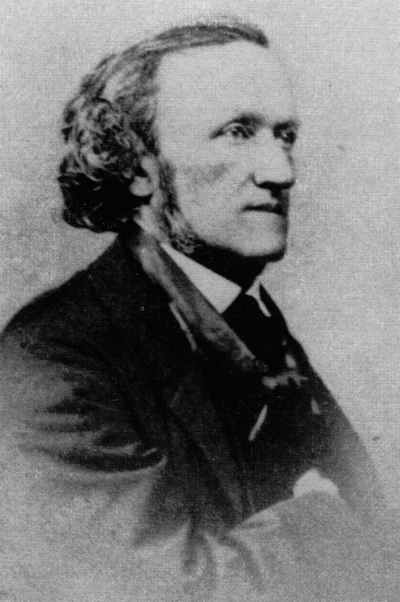
I want to hate Wagner.
I mean, his music can be tough to play and occasionally painful to sit through. And, you know, there’s also that whole racism/antisemitism thing.
Which, for me, is a big deal.
Wagner doesn’t get a pass for having written some pretty decent music. He wasn’t a nice man. He had plenty of nasty things to say about how composers such as Mendelssohn were “bad” for Germany (Mendelssohn was Jewish). Hitler was a fan of Wagner, which should tell you something right there.
So what, then, should we do with Wagner’s music? Do we stop listening, on principle? Do I refuse to play it when it’s on the program for one of my concerts? Should opera houses stop performing his operas (especially the ones with overt antisemitic sentiments)? Do his personal beliefs only matter if they aren’t apparent in his music, or if the music has no words and therefore one might not know if there are undertones?
The orchestra with which I play is performing the overture to Wagner’s opera Rienzi at our first concert this fall. (The irony that we’re also performing a piece by Mendelssohn is not lost on me.) Honestly, I’m torn. I like the piece. It’s fun to play, just the right degree of challenge for an amateur musician. Musically, it’s good. It’s one of Wagner’s earlier works, from an era of which I am particularly fond. All in all, it’s an enjoyable experience.
Except for that nagging feeling of discomfort.
In truth, I don’t have the answers. Part of me feels that I’m guilty of ignoring something important and participating in the marginalization of people. I am quite sure that Wagner’s sensibilities won’t be a topic of conversation at the pre-concert lecture, which means that for many, his ideologies will remain unknown. On the other hand, the man has been dead for nearly 130 years. He isn’t here to continue to spout his opinions. We can, perhaps, enjoy the music for itself at this point.
What do you think? What are the ethics of appreciating art created by someone with harmful personal beliefs?




Reading this got me to thinking about the song The Great American Novel. Worshiper Jason Upton played it at a worship service not too long back. The message of the song is good, but he also tells a story of how one time people didn’t like the song in Texas. Along with this article it got me thinking of the power of music to impact people. Especially in regards the responce those in Texas gave and in general racism.
Here is a link to the song for you to check out.
http://www.youtube.com/watch?v=ZbuHqFBzmN0&list=PLqMP3NiXxPEcC_-QdMoou8CsjNRWgRtEu&feature=plpp_play_all
Yes, that’s it exactly. Music absolutely has that power. Which is why this is such a hard issue. When I’m playing orchestral music, it doesn’t have any words. So does it still have the same impact? Wagner’s compositions did for Hitler, apparently. But that might be less today.
I’ve never heard that song before. There’s some pretty deep stuff in there. The part about sacrificing our children to save ourselves–that’s something a good friend and I have talked about before. She says she doesn’t understand how so many of her conservative friends are pro-life only in the sense of being anti-abortion; most of them are willing to then sacrifice care of their children for their own gain, or are also pro-war.
Good question. Kinda like with Phil Spector. Take one listen to “Be My Baby” by the Ronettes, and there’s no denying that the man was a musical genius. But let’s not kid ourselves. Even before Spector was found guilty of murder, dude was nucking futs! And yet, whenever I hear “Be My Baby,” I can’t help but sing along.
Yeah, I suppose the same thing might apply to actors and writers. And also, where is the line? If I oppose Wagner or Spector’s morals, and refuse to listen to their music, does someone else have the right to refuse to listen to someone else’s music because of their race or gender or sexuality? (I mean, I suppose they do, the question is really whether they *should*.)